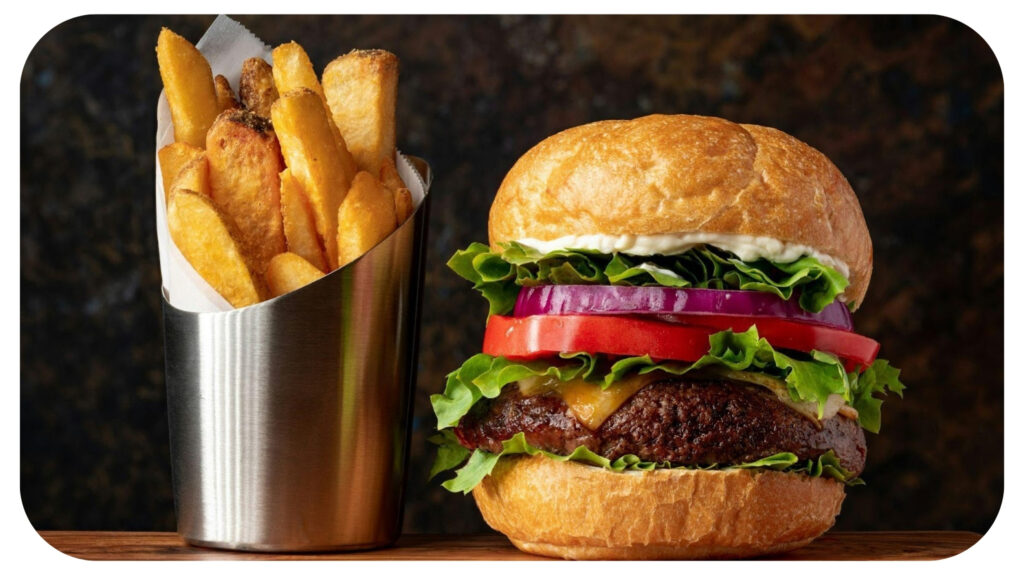Resilience in Restaurant Franchising: Lessons from Matt Frauenshuh on Navigating Challenges

Resilience in the context of restaurant franchising embodies the ability to adapt, endure, and thrive amidst a dynamic and often unpredictable industry landscape. In an environment where challenges abound, from shifting consumer preferences to economic fluctuations and regulatory changes, resilience emerges as a cornerstone for success.
Matt Frauenshuh, the CEO of Fourteen Foods, explores the significance of resilience in navigating the complexities of restaurant franchising, drawing insights from industry experiences and best practices. Through his professional lens as the largest DQ Grill & Chill franchise owner, Frauenshuh uncovers key strategies and mindset shifts that foster resilience, enabling franchise owners and operators to weather storms and emerge stronger. From cultivating agile business models to fostering robust support networks, the journey towards resilience is multifaceted.
Understanding the Landscape of Restaurant Franchising
The landscape of restaurant franchising is characterized by notable growth trends, with an increasing number of entrepreneurs and investors turning to franchising as a pathway to business ownership. This growth is driven by various factors, including the appeal of established brand recognition, access to proven business models, and the potential for rapid expansion.
Alongside this growth comes a myriad of challenges that restaurant franchise owners must navigate to succeed. Common challenges faced by restaurant franchise owners encompass a wide range of issues, from operational complexities to economic uncertainties. These challenges may include rising labor costs, supply chain disruptions, stringent regulatory requirements, and intense competition within the industry.
Navigating these hurdles requires resilience, strategic planning, and adaptability. The evolving landscape of consumer preferences significantly influences franchise operations.
“As consumers increasingly prioritize convenience, health-conscious options, and personalized experiences, franchise owners must continuously innovate to meet these evolving demands,” says Matt Frauenshuh. “Understanding and responding to shifting consumer trends is paramount for sustaining relevance and competitiveness in the dynamic restaurant franchising sector.”
Building Blocks of Resilience
Adaptability is a key tenet of success for franchisees amidst ever-changing market conditions. Those who demonstrate a capacity to swiftly adjust strategies, menus, and operations in response to changing consumer preferences, economic shifts, or regulatory changes are better positioned to thrive in the competitive landscape of restaurant franchising.
Innovation plays a pivotal role in overcoming obstacles encountered along the franchising journey. Franchise owners who embrace creativity and forward-thinking approaches are better equipped to differentiate their offerings, enhance customer experiences, and stay ahead of industry trends.
Notes Frauenshuh, “Whether through menu innovations, technology integration, or marketing strategies, innovative thinking fuels resilience and fosters long-term growth.”
Collaboration within the franchise community fosters resilience by providing access to shared knowledge, resources, and support networks. Franchisees who actively engage with fellow owners, corporate leadership, and industry associations benefit from collective wisdom and solidarity.
By leveraging collaborative opportunities, franchisees can navigate challenges more effectively, capitalize on emerging opportunities, and strengthen their position within the competitive landscape of restaurant franchising.

Strategies for Navigating Challenges
Robust financial planning and management practices are imperative for franchisees to weather challenges effectively. By maintaining a clear understanding of cash flow, budgeting diligently, and implementing prudent financial strategies, franchise owners can mitigate risks and ensure long-term financial stability in the face of economic fluctuations or unexpected expenses.
Operational efficiency is a key driver of resilience, enabling franchisees to optimize resources, minimize waste, and maximize productivity. By streamlining processes, leveraging technology solutions, and implementing best practices in inventory management, staffing, and logistics, franchise owners can enhance operational agility and adaptability, thereby better positioning themselves to navigate challenges and capitalize on opportunities.
“Fostering exceptional customer experiences is key for building loyalty and resilience in the competitive restaurant franchising landscape,” says Frauenshuh.
By prioritizing service excellence, personalized interactions, and consistent quality across all touchpoints, franchise owners can cultivate strong customer relationships, drive repeat business, and withstand challenges such as shifting consumer preferences or increased competition. Investing in training programs, feedback mechanisms, and innovative service offerings can elevate the customer experience and reinforce resilience in the face of adversity.
Cultivating Resilience Culture
Leadership plays a pivotal role in fostering a culture of resilience within restaurant franchises. Franchise leaders who demonstrate vision, empathy, and adaptability inspire confidence and motivation among team members during challenging times. By setting clear expectations, providing guidance, and leading by example, leaders can instill a sense of purpose and unity that strengthens the franchise’s ability to overcome obstacles and thrive in dynamic environments.
Investing in training and development initiatives is essential for empowering franchise staff with the skills, knowledge, and confidence needed to navigate challenges effectively. By offering continuous learning opportunities, mentorship programs, and skill-building workshops, franchise owners can cultivate a resilient workforce capable of adapting to changing circumstances, seizing opportunities, and delivering exceptional performance.
Open and transparent communication channels are fundamental for fostering trust, collaboration, and resilience within the franchise network. By encouraging dialogue, soliciting feedback, and sharing information openly, franchise owners can foster a culture of transparency and accountability that enhances problem-solving, innovation, and collective resilience in the face of adversity. Effective communication builds cohesion and unity, enabling franchisees to rally together and overcome challenges as a cohesive team.
The Importance of Resilience in the Changing Restaurant Landscape
As the landscape of restaurant franchising continues to shift, the forward path is laden with opportunities for innovation and transformation. The industry stands on the cusp of a new era where adaptability, strategic foresight, and a deep understanding of consumer needs will define the next wave of success.
Looking ahead, the potential for integrating advanced technologies such as AI-driven analytics, IoT for enhanced operational efficiency, and sustainable practices will likely shape the operational paradigms of future franchises. The resilience demonstrated today lays a robust foundation for tomorrow’s growth. Franchise owners and operators who continue to embrace change, pursue innovation, and foster strong community ties within the industry are likely to not only survive but thrive.
The emphasis will increasingly shift towards creating value through exceptional customer experiences and sustainable business practices that align with global standards and expectations. In this dynamic environment, the role of leadership will become more crucial than ever.
Leaders who can inspire, adapt, and drive their organizations forward while maintaining a commitment to ethical practices and community engagement will be the pillars of the franchising industry’s future resilience and success. The journey is long and filled with challenges, but with a resilient mindset and proactive strategies, the restaurant franchising sector is well-equipped to navigate the future and carve out a path of sustained growth and innovation.
Recommended For You
The Future of Marketing: Effects of AI with Insights from Luca Cian
Most Inside
Most Inside offers high-quality recommendations and valuable updates to enhance all aspects of your life, providing premium guidance and enriching experiences.




